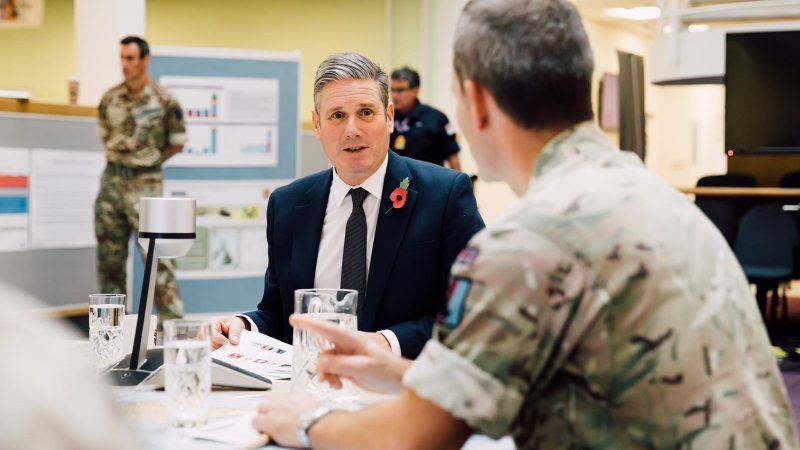
We have learnt a great deal this year. We have learnt the true scale of the inequalities exposed and widened by this crisis. We have learnt how poorly our government will treat those on the frontline that are working to support and protect us. We also learnt how far behind the government was in its preparation to rise to the challenges the pandemic presented to our country.
But we also learnt some other things. Where the government failed, our armed forces stepped up. From Nightingale Hospitals through to testing and the vaccination rollout, they were there in our hour of need. While we owe them all a huge debt after overcoming the challenges Covid brought with it, this year has given rise to questions about the way we think about our armed forces, both as a party and as a country.
As a country, it is has prompted serious questions about how we can best use our armed forces, particularly when it comes to homeland resilience. Covid has underlined that, when called upon, our armed forces can execute and deliver the services that are needed effectively and at speed. They have the insurmountable combination of skills and experience to do so. But, despite this, there was no clear plan or strategy from government that prepared our country for a crisis we knew would one day would come, and certainly no plan that would effectively integrate and harness our armed forces to deal with such a crisis.
There have been interesting local examples of how this might work, however. Take Avon and Somerset, where the armed forces were involved in supporting the local resilience forum’s efforts to assist health colleagues on the frontline. The Royal Air Force helped with setting up the Ashton Gate centre and clinically-trained personnel, predominantly from the Royal Navy, began carrying out vaccinations in mid-January.
Our armed forces can do incredible things, but they can do even more when they are supported to thrive. It begs the question of why the government is pushing on with plans to cut our armed forces by 10,000 or why, back in March this year, the National Audit Office reported that the blackhole in the ten-year equipment plan budget could be as high as £17bn.
Meanwhile, nearly a year on from the relaunch of Labour Friends of the Forces and as we approach Armed Forces Day, as co-chairs, we’ve been blown away by the incredible network of Labour supporters from the armed forces community and what we have achieved together despite the challenges of Covid. Many of them had not been listened to for some time, and understandably had not therefore engaged with our party. That’s why we have continued to hold a series of online events, offered networking opportunities, held meetings to share best practice and campaigned strongly for justice for Commonwealth veterans.
It’s been a reminder that the issues and values we champion as a party are so closely related to those communities inextricably tied to the armed forces community. In the past, we’ve been guilty of forgetting that. On Armistice Day, we said we need to rebuild our relationship with these communities, which starts with taking practical actions. That’s why the shadow defence team this week launched a veterans’ survey, to hear from veterans about their experiences and what more we can do to support them.
One year on from our relaunch, with support from members from across our movement, we now have a truly vibrant and growing armed forces network in Labour Friends of the Forces. But we’ll continue to do more. We can no longer afford to forget our shared values and the historical connection our party has with the armed forces community. Not just because it’s right thing to do, but also because we will fail to progress as a party if we don’t.




More from LabourList
Josh Simons resigns as Cabinet Office minister amid investigation
‘After years of cuts, Labour’s local government settlement begins to put things right’
‘The Sherriff of Wild Westminster: what must change in elections bill’